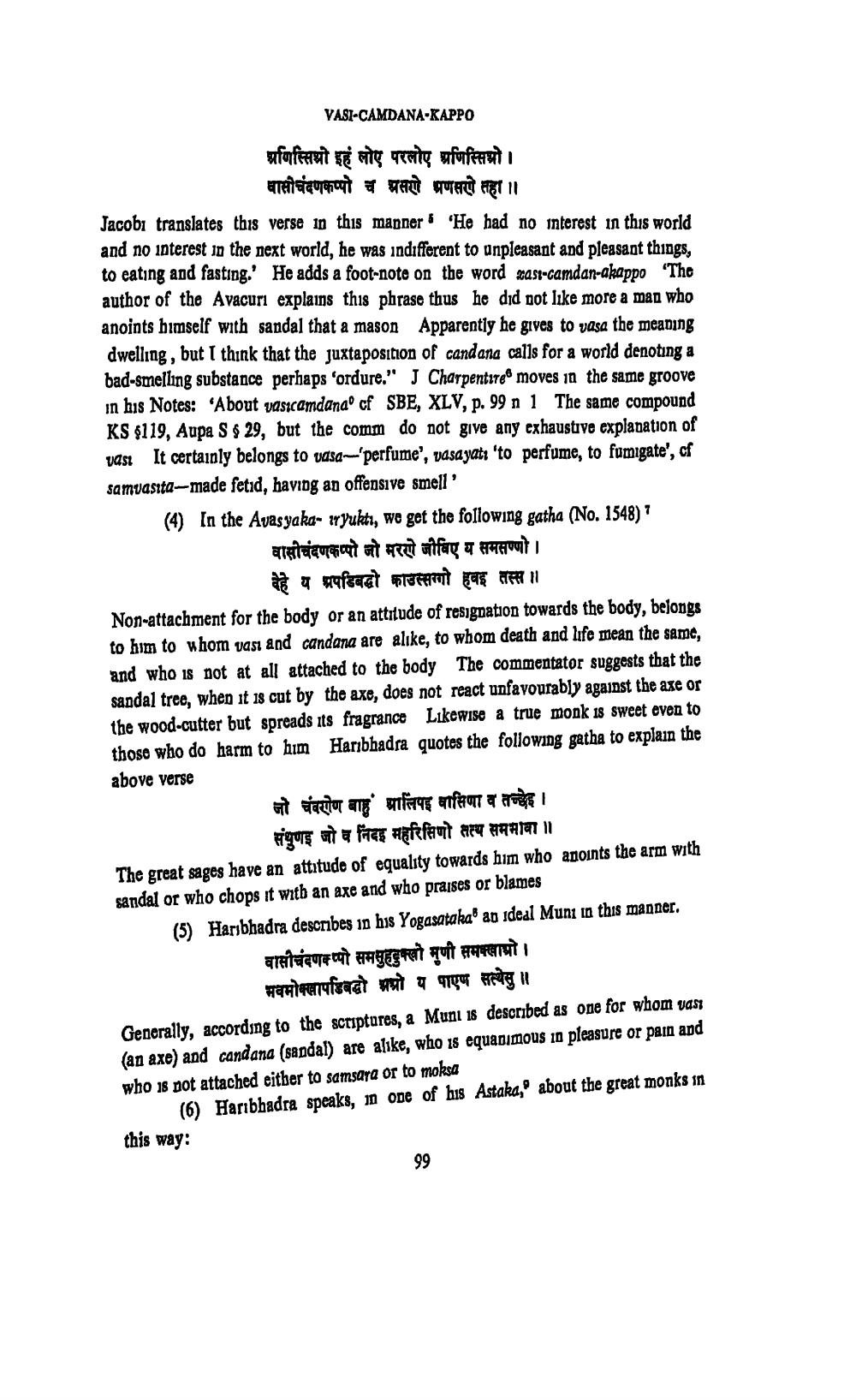________________
VASI-CAMDANA-KAPPO अणिस्सियो इहं लोए परलोए प्रणिस्सियो।
चासोचंदणकप्पो च असणे प्रणसणे तहा ॥ Jacobi translates this verse in this manner 'He had no interest in this world and no interest in the next world, he was indifferent to unpleasant and pleasant things, to eating and fasting.' He adds a foot-note on the word cast-camdan-akappo 'The author of the Avacuri explains this phrase thus he did not like more a man who anoints himself with sandal that a mason Apparently he gives to vasa the meaning dwelling, but I think that the juxtaposition of candana calls for a world denoting a bad-smelling substance perhaps 'ordure." J Charpentire moves in the same groove in his Notes: "About vasicamdanao cf SBE, XLV, p. 99 n 1 The same compound KS $119, Aupa S $ 29, but the comm do not give any exhaustive explanation of vast. It certainly belongs to vasa perfume', vasayatı 'to perfume, to fumigate', cf samvasıta--made fetid, having an offensive smell' (4) In the Avasyaka- 14Yuktı, we get the following gatha (No. 1548) *
वासोचंदणकप्पो जो मरणे जोषिए य समसण्णो ।
देहे य अपडिबद्धो काउस्सग्गो हवइ तस्स ॥ Non-attachment for the body or an attitude of resignation towards the body, belongs to him to whom vast and candana are alike, to whom death and life mean the same, and who is not at all attached to the body The commentator suggests that the sandal tree, when it 18 cut by the axe, does not react unfavourably against the axe or the wood-cutter but spreads its fragrance Likewise a true monk 18 sweet even to those who do harm to him Haribhadra quotes the following gatha to explain the above verse
जो चंबरणेण बाई प्रालिपइ वासिणा व तच्छेइ ।
संथुणइ जो व निदइ महरिसिणो सत्य समभावा ॥ The great sages have an attitude of equality towards him who anoints the arm with sandal or who chops it with an axe and who praises or blames (5) Haribhadra describes in his Yogasataka an ideal Munt in this manner.
वासीचंदणक्प्पो समसुहहुक्खो मुणी समक्खायो।
मवमोक्खापडिबद्धो मनो य पाएण सत्येसु ॥ Generally, according to the scriptures, a Muni is described as one for whom vası (an axe) and candana (sandal) are alike, who is equanimous 10 pleasure or pain and who is not attached either to samsaya or to moksa
(6) Haribhadra speaks, in one of his Astaka, about the great monks in this way:




